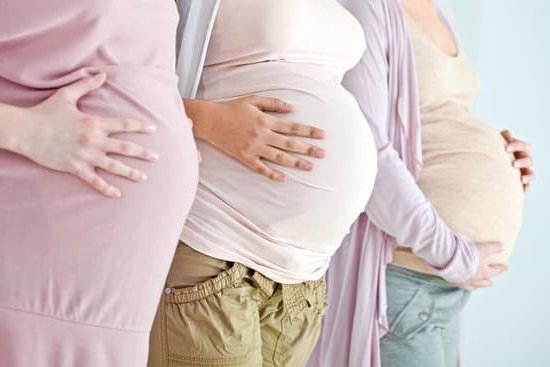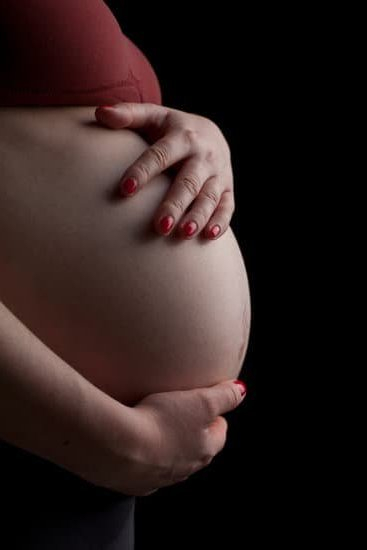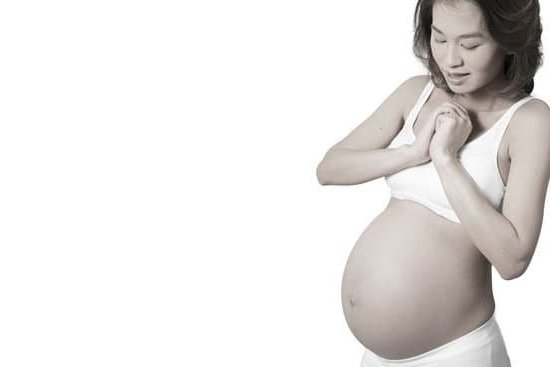Can you still ovulate in the early stages of pregnancy? Ovulation is a crucial part of the menstrual cycle that leads to pregnancy, but can it occur even after conception has taken place? Understanding the relationship between ovulation and pregnancy is essential for women who are trying to conceive or avoid pregnancy.
The menstrual cycle is a complex process that involves ovulation, where an egg is released from the ovary. This egg can then be fertilized by sperm, leading to pregnancy. However, many women may wonder if ovulation can still happen in the early stages of pregnancy. This question arises due to the common misconception that pregnancy prevents ovulation from occurring.
Signs and symptoms of ovulation can vary among women, making it challenging to determine if ovulation is happening during early pregnancy. It is crucial to understand how conception occurs during ovulation and whether ovulation can take place while pregnant. By debunking misconceptions and seeking guidance from healthcare providers, women can gain a better understanding of their reproductive health.
Understanding the Menstrual Cycle and Ovulation
Ovulation is a crucial process in a woman’s menstrual cycle that marks the release of an egg from the ovary. Typically occurring around midway through the menstrual cycle, ovulation is a key event for women trying to conceive. Understanding the menstrual cycle and ovulation can greatly increase the chances of successful conception.
The menstrual cycle is divided into two main phases: the follicular phase and the luteal phase. The follicular phase begins on the first day of menstruation and lasts until ovulation. During this phase, the body prepares for ovulation by maturing an egg within one of the ovaries. Ovulation then occurs, marking the transition to the luteal phase, where the body prepares for possible pregnancy.
During ovulation, hormonal changes trigger the release of a mature egg from its follicle in the ovary. This egg then travels down the fallopian tube, where it may be fertilized by sperm if sexual intercourse occurs around this time. It is important to note that conception can only happen if sperm meets the egg during this fertile window. This process ultimately sheds light on whether one can still ovulate during early pregnancy or not.
| Menstrual Cycle Phase | Description |
|---|---|
| Follicular Phase | The phase where an egg matures in one of the ovaries before ovulation. |
| Luteal Phase | The phase after ovulation where the body prepares for pregnancy or menstruation. |
Signs and Symptoms of Ovulation
Ovulation is a crucial part of the menstrual cycle that involves the release of an egg from the ovaries, which can then be fertilized by sperm, leading to pregnancy. During this process, hormonal changes occur in a woman’s body, causing various signs and symptoms that indicate ovulation is taking place.
One common sign of ovulation is an increase in basal body temperature, typically by about 0.5 to 1 degree Fahrenheit. This shift in temperature can help women track their fertile days and identify when they are most likely to conceive.
In addition to changes in body temperature, some women may experience other physical symptoms such as abdominal bloating, breast tenderness, and an increased libido during ovulation. These symptoms are often referred to as secondary signs of ovulation and can vary from woman to woman. Some women may also notice changes in cervical mucus consistency, which becomes clearer and more slippery around the time of ovulation, creating an ideal environment for sperm survival and transportation.
Despite these noticeable signs of ovulation, some women may wonder if it is possible to still ovulate in the early stages of pregnancy. The answer lies in the hormonal shift that occurs after conception. Once a fertilized egg implants itself into the uterus lining, the body begins producing human chorionic gonadotropin (hCG) hormone, which helps maintain pregnancy and prevents further ovulation from happening. Therefore, it is rare for a woman to continue ovulating once she has conceived.
| Signs and Symptoms | Description |
|---|---|
| Increase in basal body temperature | A rise in temperature indicating ovulation. |
| Cervical mucus changes | Clearer and slippery mucus aiding sperm survival. |
| Physical symptoms | Abdominal bloating, breast tenderness, increased libido. |
How Conception Occurs During Ovulation
During ovulation, an egg is released from the ovaries and travels down the fallopian tube where it may be fertilized by sperm. This process typically occurs around the middle of a woman’s menstrual cycle, approximately two weeks before her next period. Understanding how conception occurs during ovulation can help individuals who are trying to conceive or those who want to prevent pregnancy.
Here are some key points to consider regarding how conception occurs during ovulation:
- Ovulation is triggered by a surge in luteinizing hormone (LH) levels, which causes the mature egg to be released from the follicle.
- Once released, the egg can survive for about 12-24 hours if not fertilized by sperm.
- Sperm can live inside a woman’s body for up to five days, so having intercourse in the days leading up to ovulation still poses a risk of pregnancy.
Understanding the timing of ovulation and how conception occurs is crucial for individuals who are actively trying to conceive or avoid pregnancy. By tracking menstrual cycles and recognizing signs of ovulation, individuals can better predict when they are most fertile. It’s important to note that even though conception usually happens during ovulation, there are rare cases where individuals may wonder: “Can you still ovulate in the early stages of pregnancy?”.
Although it is rare, some women may experience spotting or light bleeding around the time when they would normally have their period despite being pregnant. This phenomenon is known as implantation bleeding and can sometimes be mistaken for a menstrual period.
However, once a woman becomes pregnant, her body typically suppresses further ovulation to prevent additional pregnancies from occurring simultaneously. If there are concerns about possible ovulation during early pregnancy, it’s advisable to consult with a healthcare provider for guidance and clarification on this matter.
Can You Ovulate While Pregnant?
Ovulation, the release of an egg from the ovary, is a crucial factor in the process of conception and pregnancy. However, it is a common question among individuals trying to conceive or already pregnant: can you still ovulate in the early stages of pregnancy? The answer to this question lies in understanding the complexities of the female reproductive system and how it functions during pregnancy.
Ovulation During Early Pregnancy
While it is rare, there are some cases where a woman may still ovulate during the early stages of pregnancy. This phenomenon is known as “superfetation,” where a second egg is released and fertilized while another embryo is already developing in the uterus. However, this occurrence is extremely uncommon and often only happens in unique circumstances.
The Relationship Between Ovulation and Pregnancy
In most cases, once conception occurs, the body typically suppresses ovulation to prevent multiple pregnancies from happening simultaneously. This suppression is essential to ensure the proper development of one fetus without competition from another. The hormonal changes that take place during pregnancy work to inhibit ovulation and create an environment conducive to supporting a growing embryo. While spontaneous ovulation during pregnancy can happen, it usually does not result in a viable pregnancy due to these hormonal changes.
The Science Behind Ovulation Suppression in Pregnancy
During pregnancy, the body undergoes significant hormonal changes that help support the growth and development of the fetus. One of these changes involves the suppression of ovulation. Ovulation suppression in pregnancy is a natural process that prevents the release of additional eggs while a woman is already pregnant. This mechanism helps ensure that only one egg is fertilized and implanted in the uterus at a time, reducing the risk of multiple pregnancies.
The science behind ovulation suppression in pregnancy is primarily driven by hormones such as progesterone and human chorionic gonadotropin (hCG). These hormones work together to maintain the uterine lining, support fetal growth, and prevent the release of additional eggs from the ovaries.
Progesterone plays a crucial role in maintaining a healthy pregnancy by inhibiting ovulation and preparing the uterus for implantation. On the other hand, hCG is produced by the developing placenta and signals to the ovaries to stop releasing eggs.
To further understand how ovulation suppression works during pregnancy, it’s essential to consider how hormonal levels fluctuate throughout gestation. In early stages of pregnancy, hCG levels rise rapidly, reaching their peak around 10-12 weeks before gradually declining. This hormone plays a key role in preventing new follicles from developing in the ovaries, thereby suppressing ovulation. As progesterone levels continue to increase during early pregnancy, they help maintain the uterine lining for implantation and support ongoing gestation.
In summary, ovulation suppression in pregnancy is a natural process orchestrated by hormonal changes to ensure optimal conditions for fetal development. While it is theoretically possible for some women to still ovulate in very early stages of pregnancy before hormone levels fully suppress ovulation, this occurrence is rare and unlikely to result in conception due to hormonal changes supporting an existing pregnancy.
If there are concerns about ovulating while pregnant or irregular menstrual cycles during gestation, it’s important to consult with a healthcare provider for further evaluation and guidance.
Common Misconceptions About Ovulation and Pregnancy
Myth: Once Pregnant, You Stop Ovulating
There is a common belief that once a woman becomes pregnant, her body stops ovulating. However, this is not entirely true. In rare cases, a woman can still ovulate in the early stages of pregnancy. This phenomenon is known as “superfetation,” where a woman releases another egg and becomes pregnant while already pregnant. While this occurrence is extremely rare and often associated with assisted reproductive technologies, it sheds light on the complex nature of the female reproductive system.
Can You Still Ovulate in the Early Stages of Pregnancy?
The question of whether ovulation continues during pregnancy raises concerns among many women. While it is uncommon to ovulate after conception due to hormonal changes that typically suppress ovulation, some women may experience spotting or irregular bleeding that could be mistaken for menstruation. It’s essential to understand that these occurrences are not necessarily signs of ongoing ovulation but rather related to other factors like hormonal fluctuations or implantation bleeding.
Dispelling Misinformation About Ovulation During Pregnancy
One prevalent myth is the belief that having unprotected sex during pregnancy can lead to a double pregnancy or twins conceived at different times. While it may seem plausible based on the possibility of superfetation, the likelihood of such a scenario is extremely low and not supported by scientific evidence. It’s crucial for individuals to consult healthcare providers for accurate information about ovulation and pregnancy to address any concerns or misconceptions they may have about their reproductive health.
When to Consult a Healthcare Provider About Ovulation and Pregnancy
During the early stages of pregnancy, it is natural for expectant mothers to have concerns about their ovulation status. Many women wonder, “Can you still ovulate in the early stages of pregnancy?” The simple answer is no; once conception has occurred and an embryo has implanted in the uterus, ovulation typically ceases. This is because the hormones released during pregnancy, such as progesterone, work to maintain the uterine lining and support a developing fetus, thereby suppressing ovulation.
Understanding this crucial aspect of pregnancy can help alleviate any worries or misconceptions about ovulating while pregnant. It is essential for women to be aware that they do not continue to ovulate once they have conceived. In fact, monitoring ovulation through methods such as tracking basal body temperature or using ovulation predictor kits may not be accurate indicators of fertility once a woman is pregnant. Instead, healthcare providers recommend focusing on prenatal care and overall health during pregnancy.
If there are any concerns about ovulation or the possibility of being pregnant while experiencing symptoms that resemble ovulation, such as light bleeding or cramping, it is advisable to consult a healthcare provider promptly. They can perform tests to confirm whether conception has taken place and evaluate any unusual symptoms that may arise during early pregnancy. As healthcare providers have thorough knowledge and experience in monitoring pregnancies, seeking their guidance can provide reassurance and peace of mind for expectant mothers.
Conclusion
In conclusion, the relationship between ovulation and pregnancy is a complex and fascinating one. Ovulation is a crucial process in a woman’s menstrual cycle, as it is during this time that an egg is released from the ovary and can potentially be fertilized by sperm. Understanding when ovulation occurs can greatly increase the chances of conception for those trying to get pregnant.
However, the question arises: can you still ovulate in the early stages of pregnancy? The answer is usually no. In most cases, once a woman becomes pregnant, her body typically suppresses ovulation to prevent multiple fertilizations occurring simultaneously. This phenomenon helps ensure the health and safety of both the mother and the developing fetus.
It’s important for individuals to know and recognize the signs and symptoms of ovulation to better understand their fertility window, especially if they are trying to conceive. Consulting a healthcare provider about any concerns regarding ovulation and pregnancy is always recommended to receive personalized advice and guidance. Overall, the delicate balance between ovulation and pregnancy plays a crucial role in human reproduction, highlighting the wonder and complexity of the female reproductive system.
Frequently Asked Questions
Can You Still Ovulate During Early Pregnancy?
It is biologically impossible to ovulate during early pregnancy because the release of an egg only occurs before conception. Once fertilization happens, ovulation ceases to prevent multiple pregnancies.
Can You Ovulate While 2 Weeks Pregnant?
Ovulation typically ceases once a woman becomes pregnant, so it is unlikely for someone to ovulate while already being two weeks pregnant. The fertilized egg should have implanted by this time.
Can You Ovulate if You’re 1 Week Pregnant?
If a woman is one week pregnant, meaning she has just conceived, it’s highly improbable for her to ovulate again in that same menstrual cycle. This is because ovulation stops once pregnancy begins to avoid further conception during that time.

Welcome to my fertility blog. This is a space where I will be sharing my experiences as I navigate through the world of fertility treatments, as well as provide information and resources about fertility and pregnancy.





